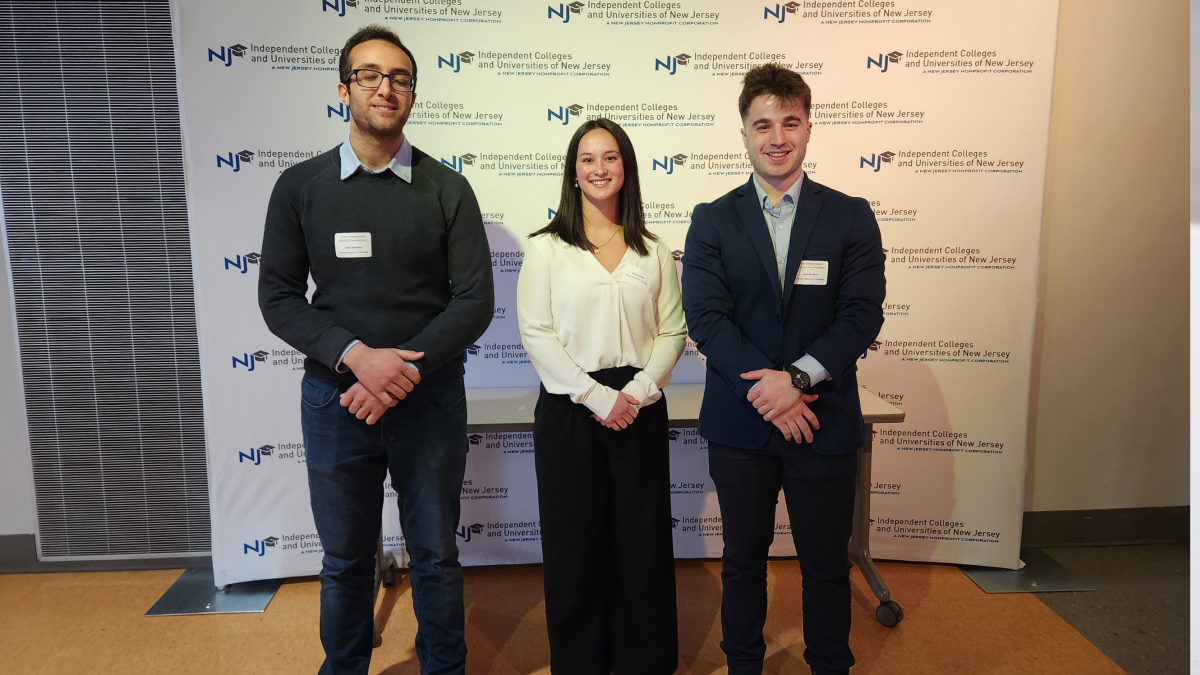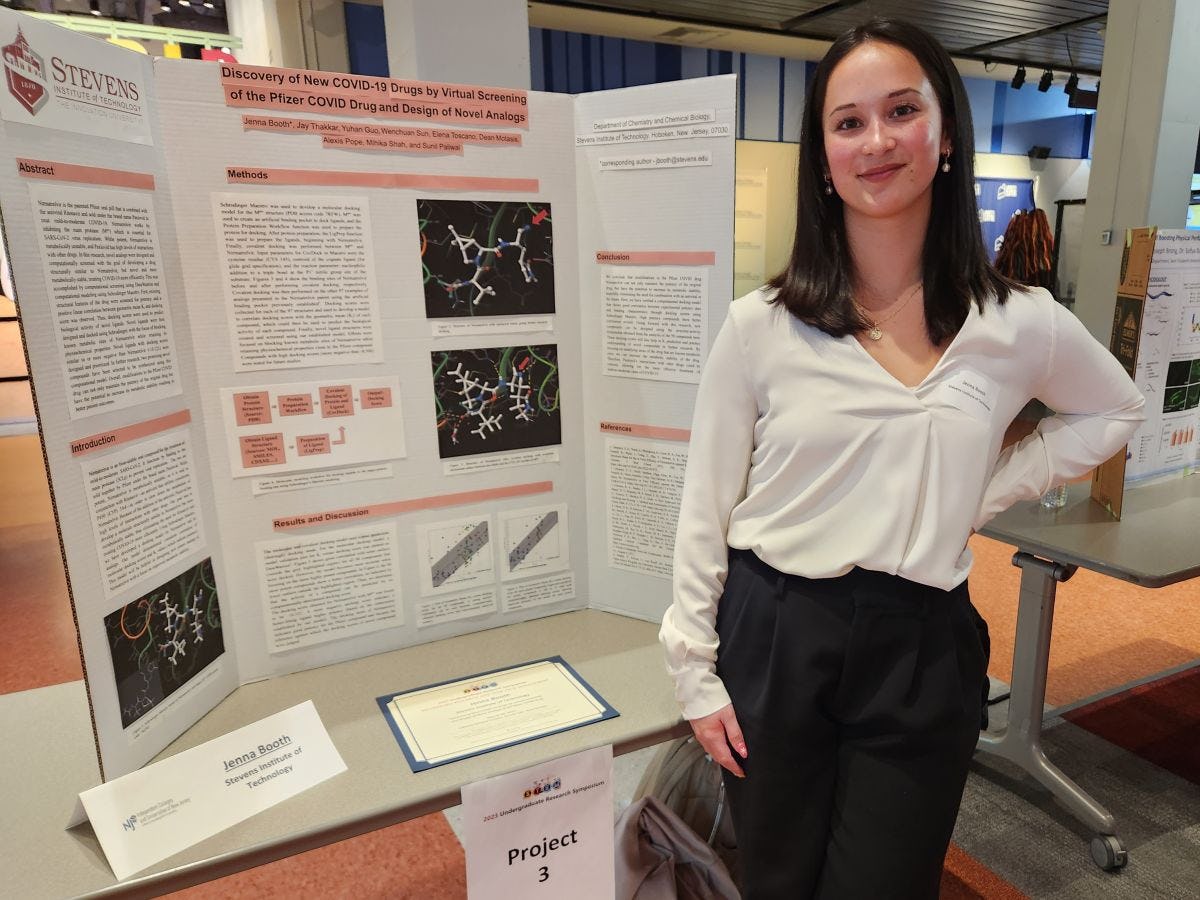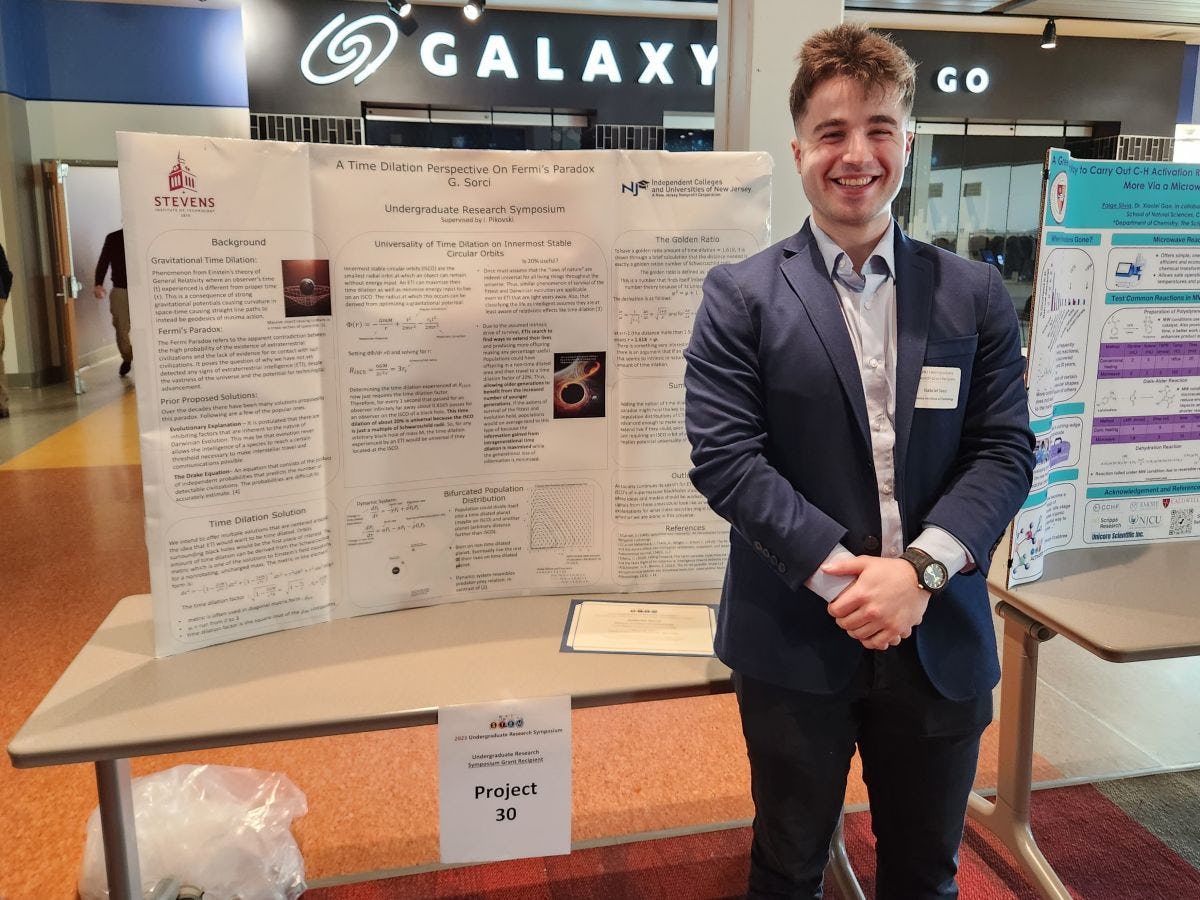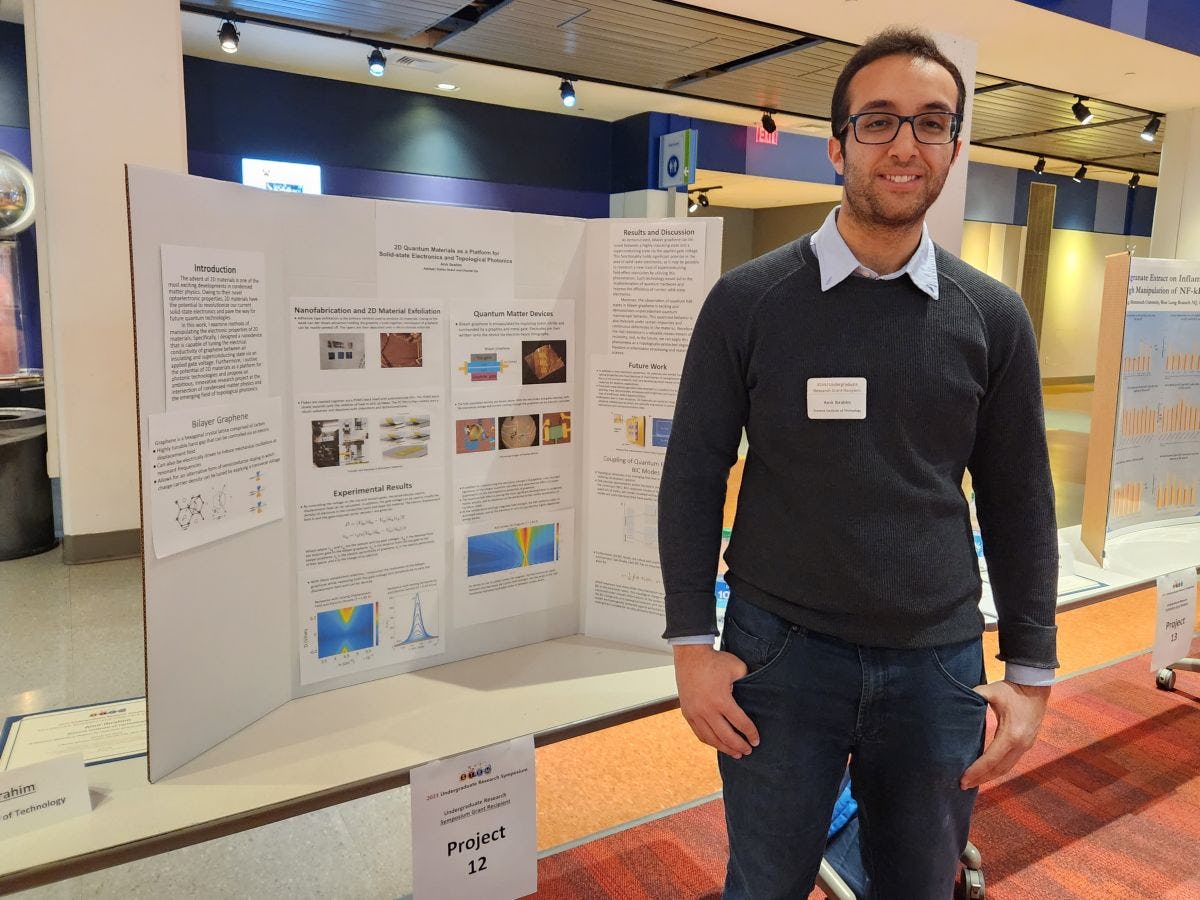Starting on the Path to a Career in STEM Research
Stevens undergrads presented their early-career research findings at the Independent Colleges and Universities of New Jersey Undergraduate Research Symposium
When Stevens Institute of Technology undergraduate students Jenna Booth ’23, Amir Ibrahim ’25 and Gabriel Sorci ’25 were selected to present their research at the Independent Colleges and Universities of New Jersey (ICUNJ) Undergraduate Research Symposium in March 2023, they did so with enthusiasm and an open mind to learn.
“I am always eager to learn about other fields of science, so the symposium was a fantastic opportunity to meet with other student researchers and learn something new,” said physics major Ibrahim.
The ICUNJ Undergraduate Research Symposium is an annual competition that provides students with real-world research opportunities and lab experience early in their higher education careers.
During this year’s event, 43 students from 12 of ICUNJ’s member colleges presented their research at Liberty Science Center in Jersey City, New Jersey. A year-round destination for science enthusiasts of any age, Liberty Science Center closed its doors to visitors that day to host the undergraduates.
Igor Pikovski, an assistant professor of theoretical quantum physics, described the research proposal and application process for the event as “rigorous.”
“Being selected to present research at the annual ICUNJ Undergraduate Research Symposium is a feat in and of itself and a great achievement,” he said. “The event is a great opportunity for students to get involved early on and to get excited about research, combined with the rare opportunity to win their own research funding at an early stage of their academic career.”
Booth, a chemistry major, was awarded third place in the competition for her research paper, “Discovery of New COVID-19 Drugs by Virtual Screening and Design of Novel Analogues of the Pfizer COVID Drug.”
Keeping STEM students engaged and resilient
To qualify for the symposium, students must propose a research project to work on under the supervision of a professor. Upon selection, each student receives up to $1,000 in research funding, which can be used to compensate for their own time and/or for research expenses. At the end of the project, students are invited to attend the symposium to present their research, hypothesis and test findings before a panel of judges.
Research topics can be about anything the students can imagine. Physics and mathematics major Sorci, for example, focused on understanding why humanity seemingly cannot see alien civilizations in his paper, “A Time Dilation Perspective on Fermi’s Paradox.”
“While it sounds like science fiction, this is a valid research question. We studied new approaches to this open question,” said Pikovski, who advised Sorci. Pikovski was also one of this year’s judges.
Preparing for the symposium, said Sorci, helped establish a path to what he envisions as a long career in his field.
“It created an awesome opportunity for me to start my journey into research,” he said.
Encouraged by the experience, Sorci is looking to take his research to new levels by participating in Stevens’ new accelerated Ph.D. program, which allows students with undergraduate research experience to transition directly into pursuing a doctoral degree. He will also continue in Pikovski’s quantum research laboratory.
A key aim of the research symposium, in fact, is to encourage undergraduates to pursue science, technology, engineering and math (commonly referred to as “STEM”) long-term. According to sponsor ICUNJ, hands-on research experience, particularly on topics that students choose themselves, “increases persistence in STEM by 121%.”
From childhood dreams to reality
For Ibrahim, the symposium created a valuable opportunity to present his research in the realm of quantum condensed matter physics and nanophotonics.
“I have done a lot of experimental work in designing and constructing quantum nanodevices out of 2D materials, much of which I presented at the symposium,” explained Ibrahim. “More recently, my research has shifted to a new field known as topological photonics, which borrows insights from solid state/condensed matter physics to manipulate light.”
The culmination of several months of hard work, presenting at the symposium, he said, has helped further his career as a professional scientist — something he’s wanted to be since childhood.
“Since I was little, I’ve always dreamt of becoming a scientist and furthering our understanding of the universe, so obtaining these opportunities and conducting research alongside several amazing physicists has been beyond exciting for me,” he said.
Pikovski praised the efforts and performances of the undergraduates, while also noting how the event helps enhance the overall undergraduate experience.
“I think Stevens was well represented at the event,” Pikovski said. “We have an incredibly research-active faculty and some of the world-leading groups in specific fields. At the same time, there are many opportunities for undergraduates to get involved. This symposium is a great place for research that involves students at an early stage.”



